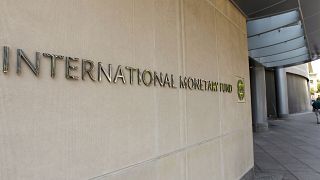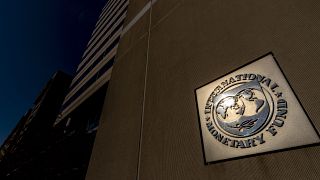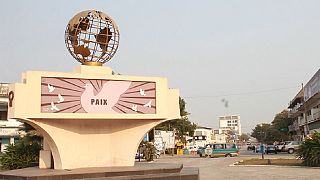Sub-Saharan Africa
The International Monetary Fund Africa Department said while the economic outlook for sub-Saharan Africa is gradually improving, implementing reforms is increasingly difficult because of challenges faced.
In its latest Regional Economic Outlook for the region published on Friday, it said high rates of poverty, lack of opportunities and jobs, and weak governance all need to be addressed through policy if development is to be achieved.
Average growth this year will remain subdued at 3.6 per cent but will improve modestly in 2025 to 4.2 per cent. However, inflation remains in double digits in nearly one-third of countries.
Debt service capacity is low, and rising debt service burdens are eating into the resources available for development spending. Foreign exchange reserve buffers are insufficient in many countries.
Deputy Director of the Africa Department, Catherine Patillo, said regional policymakers currently face “a difficult balancing act”.
“On the one hand, they need to reduce macro imbalances. That's bringing inflation to target, stabilising fiscal positions, and maintaining enough external reserves so that if they face shocks, they can deal with it,” she said.
“But on the other hand, they've got these very large development needs, given population growth, and the need to maintain social and political support.”
In addition, this all comes against the backdrop of subdued and uneven growth, she said, as well as tight financing conditions and episodes of a political and social fragility.
Navigating the path ahead will be full of painful choices, but the IMF said that inaction was not an option.
Policy must strive to reduce macroeconomic vulnerabilities while simultaneously addressing development needs and also ensure that reforms are socially and politically acceptable.
Efforts to protect the most vulnerable and ensure inclusive growth, including through sufficient job creation, are also crucial.
"First, of course, protecting the vulnerable populations, and there's real scope to improve social safety nets as a good step,” she said.
Making reforms socially acceptable will require carefully designed communication and consultation strategies, and improvements in governance to rebuild public trust.
Potillo said the credibility of the monetary policy framework is in question and that the central banks of some countries need to strengthen the confidence of investors, banks, and the public in their ability to keep inflation low and stable.
Multilateral concessional financing is critical to smooth adjustment and support development goals. The allocation of bilateral funds should focus on the poorest countries.
For countries with external financing gaps, the IMF said it stands ready to offer support.
The fund has disbursed over $60 billion since 2020, more than twice the amount disbursed in any 10-year period since the 1990s.
The IMF also provides significant help with capacity development and sub-Saharan Africa is the largest recipient.













01:30
Brazilian president slams Trump for threatening 50% tariffs
00:43
American agency S&P downgrades Senegal's credit rating from B to B-
Go to video
Gaza’s scarcity of cash fuels desperation, sparks unusual trade
01:08
Dancehall superstar Shatta Wale urges young people to back President Mahama
01:53
SMES under pressure as business confidence hits four-year low in South Africa
01:05
Lesotho declares two-year state of disaster amid US tariff fallout